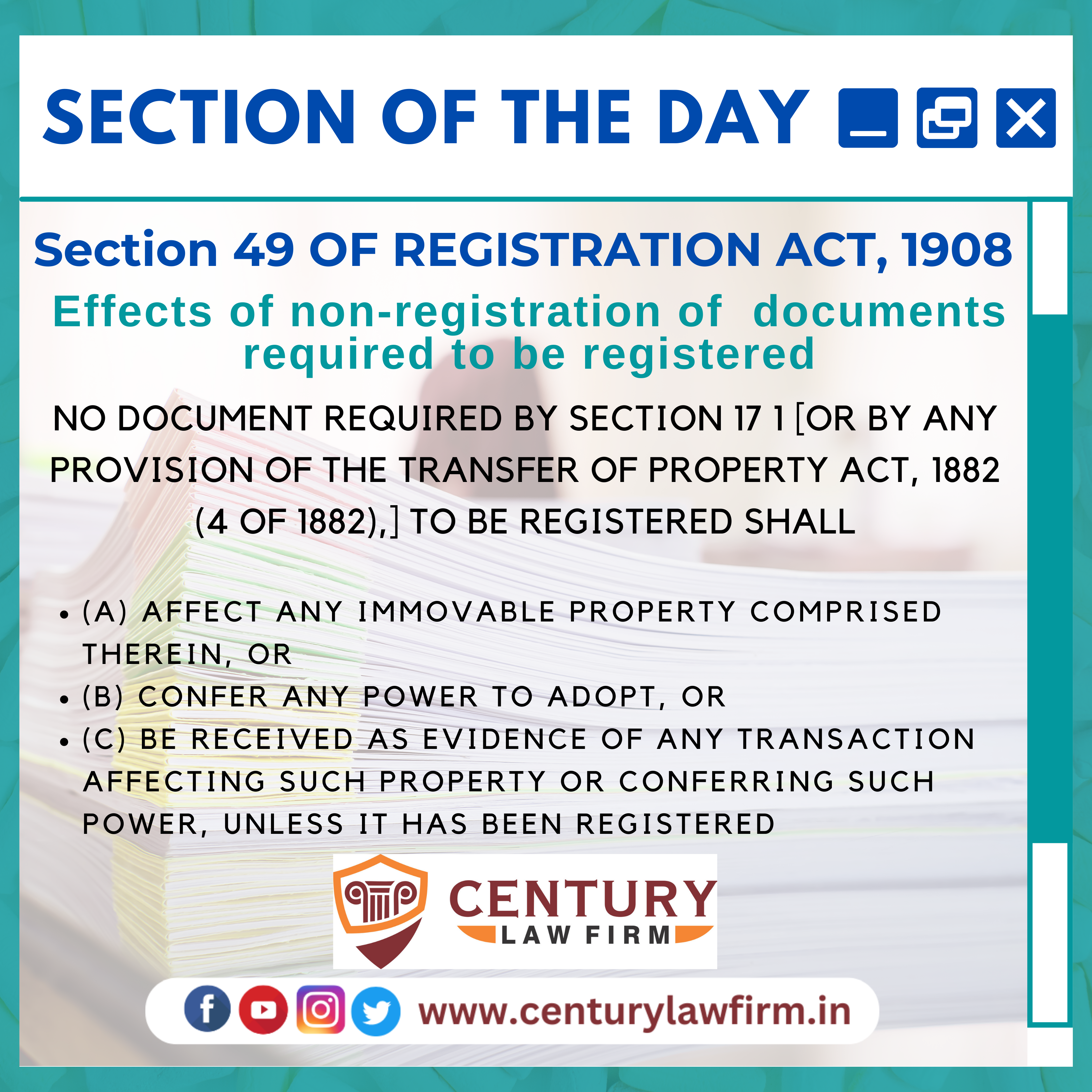Section 49 OF REGISTRATION ACT, 1908
Effects of non-registration of documents required to be registered
No document required by section 17 1 [or by any provision of the Transfer of Property Act, 1882 (4 of 1882),] to be registered shall
(a) affect any immovable property comprised therein, or
(b) confer any power to adopt, or
(c) be received as evidence of any transaction affecting such property or conferring such power, unless it has been registered.
Introduction:
The Registration Act, 1908, is a pivotal legislation in India that governs the registration of documents, ensuring transparency, authenticity, and conservation of evidence. Section 49 of this Act specifically deals with the consequences of non-registration of documents that are mandatorily required to be registered.
The Essence of Section 49
Section 49 of the Registration Act, 1908, underscores the importance of registering certain documents. If a document, which is mandatorily required to be registered under Section 17 or any provision of the Transfer of Property Act, 1882, is not registered, it has specific legal implications.
Consequences of Non-registration
- Immovable Property: A non-registered document will not have any impact on the immovable property mentioned in it. This means that any rights or claims arising from such a document concerning the property will not be legally enforceable.
- Power to Adopt: If a document conferring the power to adopt is not registered, such power will not be recognized legally.
- Evidentiary Value: A non-registered document cannot be used as evidence in a court of law for any transaction affecting the mentioned property or conferring the power of adoption.
The Rationale Behind Section 49
The primary objective behind this provision is to ensure that all significant transactions, especially those related to immovable property, are transparent and recorded. This not only safeguards the interests of the parties involved but also aids in dispute resolution by providing clear evidence of transactions.
Interplay with the Transfer of Property Act, 1882
Section 49 also references the Transfer of Property Act, 1882, highlighting the interconnectedness of property laws in India. Certain provisions in the Transfer of Property Act mandate the registration of documents, and non-compliance leads to the consequences laid out in Section 49 of the Registration Act.
Real-world Implications
In practical scenarios, many property disputes arise due to non-registration of documents. Parties often find themselves in complex legal battles because they failed to register a crucial document, rendering it ineffective in the eyes of the law.
Conclusion:
Section 49 of the Registration Act, 1908, serves as a stern reminder of the importance of registering vital documents. It emphasizes the legal principle that for certain transactions to gain legal sanctity, they must be properly recorded and registered. This provision, while seemingly straightforward, plays a crucial role in upholding the integrity of property transactions in India.



